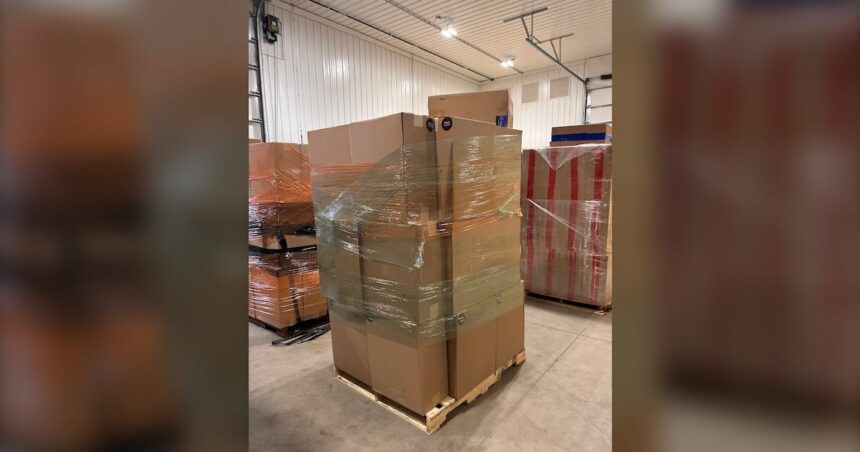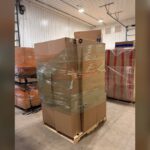In what authorities are calling one of the largest contraband tobacco seizures in Saskatchewan’s history, RCMP officers intercepted a commercial truck carrying nearly five million unstamped cigarettes and a significant quantity of opium during a routine highway inspection near Swift Current.
The discovery occurred last Thursday when officers from the Saskatchewan Highway Patrol flagged a suspicious eastbound commercial vehicle on the Trans-Canada Highway. What began as a standard compliance check quickly escalated when inspectors noticed irregularities in the driver’s documentation and cargo manifest.
“The sheer volume of contraband discovered is staggering,” said RCMP Superintendent Marion Collins at a press conference Monday morning. “We’re looking at approximately 4.9 million unstamped cigarettes with an estimated street value exceeding $1.2 million, alongside 247 grams of opium concealed within the cargo.”
According to investigators, the unstamped cigarettes represent approximately $800,000 in evaded provincial and federal taxes. The Canada News desk has learned that authorities believe the shipment originated outside Canadian borders and was destined for distribution networks in Manitoba and Ontario.
The 38-year-old driver from Brampton, Ontario, whose identity remains under publication ban pending formal charges, was taken into custody at the scene. He faces multiple charges including possession of unstamped tobacco products under the Excise Act, smuggling under the Customs Act, and possession of a controlled substance for the purpose of trafficking under the Controlled Drugs and Substances Act.
“This seizure highlights the increasingly sophisticated nature of contraband operations in Canada,” said Jennifer Martinez, spokesperson for the Canada Border Services Agency. “These criminal networks exploit regulatory differences between jurisdictions and rely on complex distribution channels that often intersect with other illegal activities.”
The CO24 Business team’s analysis indicates the contraband tobacco trade has surged in Canada over the past decade, with the Canadian Taxpayers Federation estimating annual tax revenue losses exceeding $2 billion nationwide due to illicit cigarette sales.
Health Canada officials have expressed additional concerns about these products, noting that contraband cigarettes frequently fail to meet regulatory standards and may contain higher levels of harmful chemicals than their legal counterparts.
“Beyond the obvious tax evasion concerns, these products typically bypass quality control measures and age verification safeguards that protect consumers,” said Dr. Raymond Cho, a public health researcher at the University of Saskatchewan.
The investigation has now expanded to include federal agencies tracking potential connections to larger smuggling operations. The CO24 Politics desk reports that this case has renewed calls from provincial officials for enhanced coordination between jurisdictions to combat cross-border smuggling networks.
This seizure comes amid growing pressure on federal and provincial governments to address gaps in enforcement that allow contraband tobacco to flourish in certain regions. The Saskatchewan Ministry of Finance estimates the province loses approximately $50 million annually to illegal tobacco sales.
As investigators continue to trace the origins and intended destination of this massive shipment, the question remains: how many similar operations are successfully evading detection across Canada’s vast transportation network, and what will it take to effectively disrupt these criminal enterprises?










